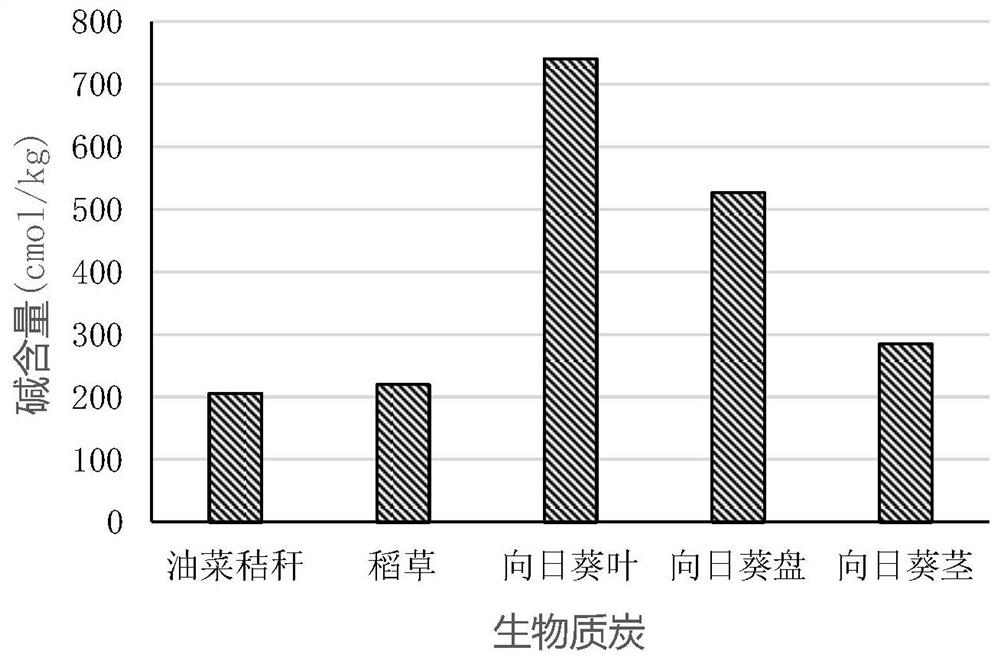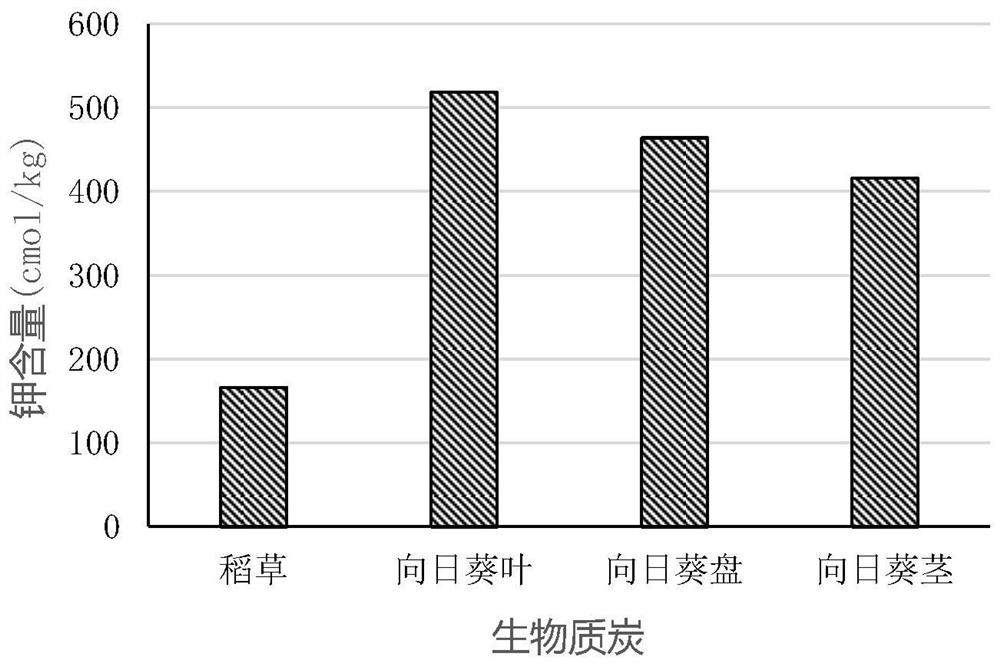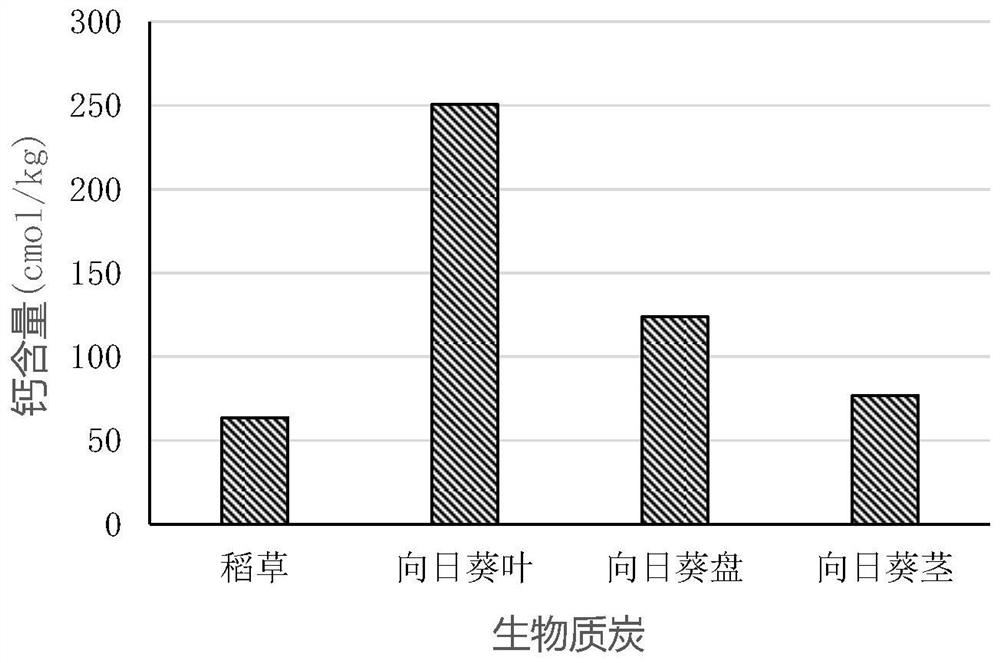Acidic soil biomass charcoal improver as well as preparation method and application thereof
A technology for acidic soil and biomass charcoal, which is applied in application, land preparation methods, soil conditioning materials, etc., can solve the problems of low carbon-alkali content, large amount of straw biomass charcoal, and poor improvement effect of acidic soil.
- Summary
- Abstract
- Description
- Claims
- Application Information
AI Technical Summary
Problems solved by technology
Method used
Image
Examples
Embodiment 1
[0030] Biomass carbon alkali content and potassium, calcium, magnesium content
[0031] Sunflower stalks were collected from Bayannur, Inner Mongolia, where these sunflowers grow on the saline-alkaline soil of the region. After sunflower seeds are harvested, the sunflower leaves, disks and stems are used to collect materials, and they are brought back to the laboratory to be air-dried and ground for later use. At the same time, rice straw and rape straw were collected in Nanjing, Jiangsu, and the two straws were treated in the same way for comparative research. Different organic materials were loaded into ceramic crucibles, pressed tightly, covered with a lid, and then put into a muffle furnace for carbonization at 400°C for 3 hours. After cooling, it is used for the determination of alkali content and potassium, calcium and magnesium. figure 1 The results showed that the alkali content of biochar prepared from sunflower leaves and discs was much higher than that of rapeseed...
Embodiment 2
[0034] Improvement effect of biochar on red soil in dry land under culture experiment conditions
[0035] Weighed 200 g of air-dried acidic red soil (collected from Yingtan, Jiangxi), and added rice peat charcoal and biochar prepared from sunflower leaves, discs and stems respectively according to 1% of the soil weight. The treatment without biochar was set as the control. Mix the soil sample and biochar thoroughly and put them into a disposable plastic cup, adjust the soil water content to 60% of the field water holding capacity of the soil with deionized water, seal the plastic cup with a plastic film, and leave 5 A small hole with a diameter of 2 mm allows gas exchange and reduces water loss. Then the plastic cups were placed in a constant temperature incubator at 25°C for 30 days in the dark. Weigh and rehydrate every 3 days to keep the soil moisture content constant. After the cultivation, the soil samples were taken out, air-dried, ground, and passed through a 60-mesh ...
Embodiment 3
[0038] Improvement effect of biochar on acidic paddy soil under culture experiment conditions
[0039] Collect acidic paddy soil from Yingtan, Jiangxi and Changsha, Hunan respectively, air-dry and grind the soil samples, then add corn stalk charcoal and sunflower tray biochar at a ratio of 3% of the soil weight, and mix them as described in Example 2 The method was used for constant temperature cultivation, and the soil pH was measured after 30 days of cultivation. Figure 11 and Figure 12 The results showed that the effect of adding sunflower disc biochar on the pH of the two paddy soils was far superior to that of corn straw charcoal, showing an excellent improvement effect on acidic paddy soil.
PUM
| Property | Measurement | Unit |
|---|---|---|
| Caliber | aaaaa | aaaaa |
Abstract
Description
Claims
Application Information
 Login to View More
Login to View More - R&D
- Intellectual Property
- Life Sciences
- Materials
- Tech Scout
- Unparalleled Data Quality
- Higher Quality Content
- 60% Fewer Hallucinations
Browse by: Latest US Patents, China's latest patents, Technical Efficacy Thesaurus, Application Domain, Technology Topic, Popular Technical Reports.
© 2025 PatSnap. All rights reserved.Legal|Privacy policy|Modern Slavery Act Transparency Statement|Sitemap|About US| Contact US: help@patsnap.com



